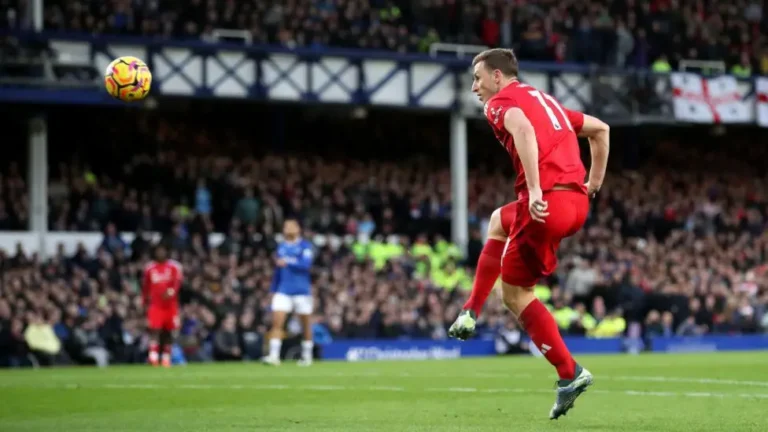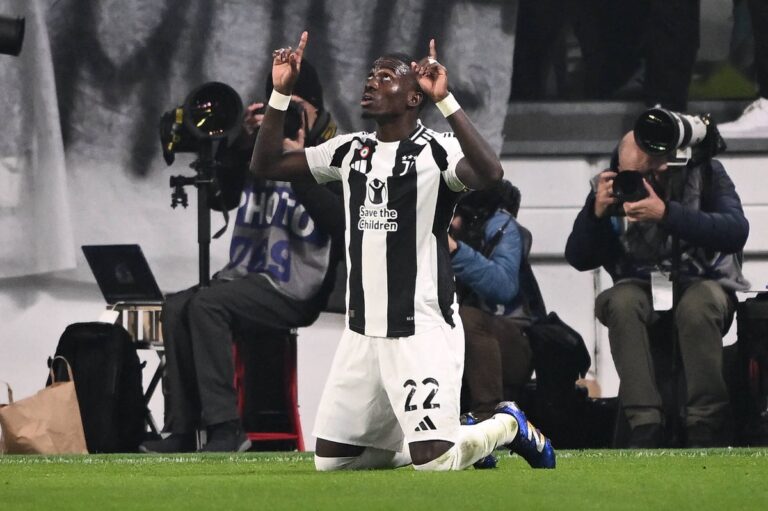
Malmo: The Echo of Swedish Football’s Golden Era – Could They Also Be Its Downfall?
‘När Europeisk fotboll går mot ruinen brant, lever vi kvar i en till vado med Guldkant’
The message was displayed on two massive banners that covered the entirety of the Northern Stand at the Eleda Stadium. Malmö's supporters had something to express, and the arrival of Rangers in September for the inaugural match of the club's Europa League journey was the ideal moment to convey it. “While European football stands on the brink of ruin,” it proclaimed, “we’re living on the edge of a golden age.”
These days, Malmö certainly seems to embody that sentiment. The timing of the display was particularly apt: the wealthiest and traditionally most successful club in Sweden—the only Scandinavian side ever to reach a European Cup final—was not only back in European tournament action but also just weeks away from claiming yet another domestic title.
However, the fans' message was broader than just that. The two banners framed a coordinated display that celebrated not only Malmö's accomplishments but the model that has enabled them to achieve success. As the teams entered the pitch, supporters in the Northern Stand raised cards into the air, collectively spelling out: “51%.”
Sweden takes considerable pride in being European football's great outlier. Like in Germany, the country's clubs are required by law to be majority-owned by their fans. The teams competing in the top-flight Allsvenskan are not assets to be traded by private equity firms or corporate owners or multi-club conglomerates. This status was hard-won and is fiercely protected.
In fact, Sweden surpasses even the German Bundesliga in certain respects. Broadcasters must provide at least two months' notice if they intend to reschedule matches for live television. Teams are not permitted to travel more than 30 miles for midweek games. Fans have successfully pushed back against the introduction of video assistant referees, arguing that it would detract from the in-stadium experience. It is a league structured by fans, for fans.
This model has proven effective. While many European leagues grapple with a challenging economic outlook, Sweden's league is thriving. A survey from 2012 indicated that only 11 percent of Swedish fans considered the Allsvenskan their favorite sporting league; at that time, the Premier League, the Champions League, and the nation's top ice hockey division all garnered more support. A decade later, that figure surged to 40 percent. During this period, attendances doubled, and revenues tripled.
In many respects, Malmö epitomizes all that is commendable about Sweden’s approach. The club represents the Platonic ideal of Swedish football; an authentically organic success story. At the turn of the millennium, Malmö was languishing in the country’s second tier—25 years later, they have once again emerged as the most formidable force in Swedish football.
Guldet stannar i Malmö. pic.twitter.com/zhKxuIrHm4
— Malmö FF (@Malmo_FF) October 28, 2024
There has been no external investment, no billionaire benefactor, no miraculous intervention—only the long-term vision, astute decision-making, and prudent thinking of a fan-owned and operated club. “We have earned everything ourselves,” states the club’s CEO, Niclas Carlnen. The same sentiment, nearly verbatim, was echoed by executives within the Allsvenskan.
The challenge—certainly for the league, and potentially for Malmö itself—is that the club may, in effect, be managed too well. Their success could make Sweden’s model appear less like an asset and more like a hindrance. What might be seen as a new golden age could instead signal the conclusion of one.
Philipp Longo pauses for a moment before recalling his most challenging experience as a Malmö fan.
He is acutely aware of his fortunate position. For the last 15 years, he has been supporting the team, having first attended matches at Eleda Stadium when he was around nine or ten, and now dedicating much of his free time to following them on the road as well.
Throughout his journey, moments of despair have been rare. Eventually, he settles on the 2018 season. That year, Malmö experienced a downturn in form, dismissed their manager, and had to hastily make several mid-season signings to mitigate the situation. “It was total chaos,” Longo recalls.
That stands as the worst experience he can recollect. Ultimately, Malmö still finished in third place.

Malmö scramble away a shot on goal by Häcken during a match in 2018 (Nils Petter Nilsson/Getty Images)
Aside from that solitary season, Longo's tenure as a Malmö supporter has predominantly been filled with joy.
He has witnessed his team reach the group stage of the Champions League three times and the Europa League five times, including the current season. He has celebrated two Swedish Cup victories and lost count of the league titles they have secured. “This year made it either seven or eight, I think,” he admits.
This is not false humility or pretense: Longo genuinely does not recall, as demonstrated by the fact that the accurate number is actually nine. “That kind of says it all,” he reflects. In the past decade, Malmö has achieved so much that even their most devoted supporters struggle to keep track.
For Sweden, this marks a significant shift. One of the major appeals of the Allsvenskan over the last 20 years has been its competitive equilibrium. The Swedish league has cultivated a knack for creating exciting, nail-biting title races—four of the last seven have been decided on the final day, often with multiple teams in contention—and has produced a more diverse array of champions compared to any similar league in Europe.
In contrast, most major leagues are dominated by a select few clubs. Six teams have claimed the Premier League title in this century. Similarly, six have won the Bundesliga during that timeframe, while Italy’s Serie A has seen five champions, and Spain’s La Liga has had four victors.

Since 2000, only six clubs have won the Premier League. Manchester City have done it eight times, including winning six of the past seven (Michael Regan/Getty Images)
The same trend has also been observed in what might be termed Europe’s middle-tier leagues, Sweden's natural counterparts. Denmark has produced five champions since 2000, Belgium six, and Hungary and Norway seven. In contrast, Sweden has crowned 11 champions, a figure that only Poland (eight) and Romania (nine) come close to matching.
This diversity can be seen as both a result of Sweden’s model—the lack of external investment means no club holds an overwhelming financial edge over its rivals—and a catalyst for its success. Attendance and interest soar when the outcomes of specific matches and entire seasons do not feel predetermined.
However, the landscape is evolving.
Malmö's early growth, as Carlnen explains, can be traced to the “risks” undertaken by his “visionary” predecessors. “They made the decision to build the new stadium, to take the leap to do all these things that elevate us now,” he reflects.
In recent years, the club’s progress has increasingly depended on something entirely different. “In the last seven or eight years, we have a lot to thank the European competitions for,” Longo states. “I feel that a lot of our success has stemmed from being in Europe.”
Malmö’s rich history, popularity, and infrastructure have long provided it with a financial edge over most, if not all, of its competitors; that advantage has been amplified by the influx of funds garnered from their consistent participation in the Champions League or Europa League.
A single group-stage campaign in the Champions League can be valued at approximately $40 million (£31.8 million)—not too far off the club's typical annual income; even the $15 million or so available in the Europa League can be transformative in a league like Sweden's. “There is no avoiding it,” asserts Isak Eden, the head of the Swedish Football Supporters’ Union. “Malmö has a substantial advantage.”
This advantage is evident.
Malmö has now secured four out of the past five championships, clinching the latest edition of the Allsvenskan with several matches to spare. Longo estimates that the club’s budget is nearly double that of their closest adversaries.
Daniel Andersson, Malmö’s technical director, claims this might be an exaggeration. However, he does agree that the wealth gap is genuine and widening.
Gårdagen. pic.twitter.com/J0QKD6g9Gn
— Malmö FF (@Malmo_FF) October 29, 2024
Sweden, once the great outlier, now seems caught in the same trap as many other leagues across Europe, from Bulgaria to Belarus, Scotland to Serbia: a cycle where the financial gains from teams qualifying for Europe create both a virtuous and vicious circle, where success breeds success but simultaneously stifles competition. The impact would likely be magnified significantly if, or when, Malmö begins to qualify for the league phase of the Champions League more regularly.
It’s no wonder, then, that a league that values unpredictability and openness would prefer to disrupt this cycle.
What is more remarkable is that this consideration comes from Malmö as well.
Carlnen's immediate reaction is assertive.
“We will never lower the bar,” he states when asked whether Malmö's success—and the cycle of wealth it generates—poses a problem for Swedish football. According to him, Malmö's duty is to do everything possible to win. “We should always strive to improve,” he emphasizes. “We will not wait for others.”
If this sounds like the standard ruthless self-interest in football, the reality is more complex.
Carlnen is, for instance, pleased that Malmö is not the sole representative of the Allsvenskan in Europe this season. Elfsborg is in contention to reach the playoff phase of the Europa League with two matches remaining; Djurgårdens, one of Malmö’s historical rivals, has successfully navigated the league phase of the Conference League. “That is immensely important for Swedish football,” he adds.
His rationale stems from a form of enlightened self-interest. Malmö’s “dream,” he explains, is to compete both domestically and internationally. However, there is a risk that they may be too affluent for their local rivals while not wealthy enough to match privately owned teams from larger television markets elsewhere in Europe.
The only way to escape this predicament, he believes, is for the Allsvenskan to expand, allowing the rising tide to uplift Malmö alongside everyone else. There is a recognition that Sweden’s clubs must “collaborate and push each other,” as Andersson puts it. This applies particularly in youth development, where the league has witnessed a rise in the number of young players being sold directly to the most lucrative market of all: England, rather than intermediate markets like Denmark and the Netherlands.
The hope is that players such as Yasin Ayari (who moved from Stockholm’s AIK to Brighton last year) and Lucas Bergvall, the Djurgårdens prodigy who recently joined Tottenham, can blaze a trail for others to follow. The income they generate can then help teams to close the gap with Malmö.
“You do not have to be in the Champions League to generate income,” states Svante Samuelsson, technical director of Svensk Elitfotboll, the governing body of the Allsvenskan. “We want to assist clubs in developing wingers and forwards primarily because that is where the real money lies.”

Bergvall, left, now at Tottenham, celebrates with his teammate Richarlison during a Europa League match (John Walton/PA Images via Getty Images)
However, the most crucial factor, even in Malmö’s view, is discovering how to assist more teams in accessing the prize money available in Europe. “That creates more revenue in the system, heightens interest in our teams and our league from the outside,” he asserts. “It establishes a stronger base for us.”
This would, undoubtedly, lessen Malmö’s advantage. “Having three teams regularly participating in Europe would make it harder for one team to maintain dominance,” states Lars-Christer Olsson, an experienced executive who has held positions as both president of Svensk Elitfotboll and chief executive of UEFA.
The fact that Malmö does not perceive this as a drawback illustrates the collaborative spirit that—perhaps uniquely—characterizes Swedish football.
The Allsvenskan's “solidarity mechanisms” are “among the best in Europe,” as Carlnen highlights: alongside a fair distribution of television and betting revenue and increased payments to non-European clubs from UEFA, the league offers loans to teams that have qualified for European competitions to assist them during the convoluted qualifying rounds. The agreement is that should they succeed in reaching the main competition, they are required to repay the funds with interest, which is then redistributed to their rivals.
Other strategies are being explored, including whether a model similar to that employed in the Netherlands, where teams in the Champions League distribute a portion of their prize money to domestic competitors, could be implemented in Sweden as well. At present, there are no plans for such drastic measures; the prevailing belief is that it is possible to continue sustaining what Sweden has established collectively without such extreme intervention. After all, Malmö serves as a testament to what can be accomplished.
While it may counteract their immediate interests, even they hope that others can emulate their success.
“We desire a strong league,” Carlnen concludes, “because we can see it benefits Malmö.”
(TOFIK BABAYEV/AFP via Getty Images)




